The coronavirus pandemic has caused global disruption, altering the daily lives of nearly everyone around the world.
As the gravity of the situation unfolded, TechWomen alumnae throughout Africa, Central and South Asia and the Middle East were already thinking ahead, applying their ingenuity and problem-solving skills to innovate for change. Here we bring you stories of our fellows and mentors who, amidst uncertainty and unrest, have gone above and beyond to serve their communities.
Faten Khalfallah, 2015 fellow of Tunisia: creating PPE for medical workers
Beginning in late March, Faten felt a call to action to support her country and its healthcare workers on the front lines. Faten is the founder of First Skills Club, a STEM education initiative that introduces Tunisia’s youth to technologies such as mobile apps, robotics, electronics, design and 3D printing. Just days into the crisis, she moved her family from their home to the First Skills Club headquarters in order to begin making as much Personal Protective Equipment as possible. After preliminary trials, Faten began designing and 3D printing face shields; each piece took slightly over an hour to print and five minutes to join.
Faten partnered with Yes We Breathe, an initiative that is working to create additional equipment for Tunisian hospitals, as well as local doctors requesting supplies. Each day, Faten sent the equipment she created to a local doctor in Sfax who distributed them to his medical staff. It was her goal to print over 1,000 pieces, and she accomplished that milestone by mid-April — she even created an additional 300 shields for local police and military members. Recently, Faten began production of protective gowns and face shields, sewing with colorful fabric that will, in her words, “spread joy.” Faten has also recruited help from her First Skills Club mentees, who are all working to create mobile apps, awareness videos, and robots that can serve as resources. Moving forward, she plans to launch a competition that will showcase tech solutions for the effects of COVID-19 in her community. “It’s my duty toward my country and my community, and I’m so happy to help and inspire young generation,” she says. “I will not stop working.”
Africa Teen Geeks (ATG), the organization founded by 2017 fellow Lindiwe Matlali, has launched STEM Lockdown Digital School in partnership with South Africa’s Department of Education. The digital school offers free daily curriculum for multiple education levels, streaming free lessons in physical science, math, coding, life science, literacy and more from educators around the country. ATG has partnered with leaders throughout the African continent, including Director of UN Women Phumzile Mlambo-Ngcuka and former Statistician-General Dr Pali Lehohla, both of whom read books to students during ATG’s weekly storytime sessions.
Beginning this week, STEM Lockdown Digital School expanded to community television in order to widen its audience and reach more students in need of learning resources. ATG also recently implemented a week-long daily giveaway of 10G of data to four students from disadvantaged communities so they could attend the digital school. Within the first 17 days of its programming, STEM Lockdown Digital School reached over 53,000 students throughout the African continent.
Reshma Singh, TechWomen Professional Mentor: feeding families in need

1) Families fill the Grocery Request Form received from neighborhood groups and county government. 2) Reshma and her team call the families and prioritize deliveries based on urgency. 3) Each driver is provided with multi-family routes. 4) No-contact grocery deliveries have been completed at the doorsteps of around 1000 vulnerable families.
Last month, Professional Mentor Reshma Singh created the Emergency Community Food Pantry, organizing community volunteers to deliver food and goods to families in need throughout the Bay Area. Reshma began by creating a simple google form that she initially shared via NextDoor, an app where neighbors can exchange information. Within just a few weeks, the emergency pantry’s volunteer base grew to 90; together, the volunteers served nearly 1,000 vulnerable families in Santa Clara and Alameda counties. Reshma and her team even made an app that allows delivery driver volunteers to optimize routes.
This week, Reshma spoke to an elderly woman with multiple health issues who requires a walker. Due to her mobility restrictions, she requested that the volunteer delivery driver drop off her groceries inside her home. When she became upset after learning it was not possible, Reshma offered to speak to her on the phone; at the end of the conversation, the woman insisted that the delivery driver bring a ladder so that they could take the oranges off her tree and feed anyone else in need. “Many people have reached out to learn how local groups can mobilize and get organized,” says Reshma. “The process is highly replicable, and I hope that more communities can benefit from this small experience of ours!”
Crescence Elodie, 2018 fellow of Cameroon: bringing easy-to-access resources
As the COVID-19 crisis was unfolding, Crescence Elodie, an entrepreneur, wanted to create a platform where Cameroonians could easily access safe and reliable information. Soon after, she created Sandra, a live chatbot that shares the latest information on symptoms and local initiatives that are supporting citizens and working to combat the virus. Crescence launched the WhatsApp messenger chatbot through WETECH, the organization she founded that supports African girls and women in the fields of entrepreneurship and technology.
Sandra is available 24 hours a day, bringing the latest news on COVID-19 positive cases in Cameroon and texting users the information they require based on their needs. Sandra can link to a rapid symptom-checker test that offers preliminary information, as well as local resources for people who are symptomatic or want additional information. Soon, Crescence and her team will add an alert system that sends the most up-to-date information on COVID-19 in Cameroon. “People have started to ask us if they can have the bot integrated on their websites or mobile application,” says Crescence. “The feedback so far has been wonderful.”
Asmara Rahat, 2019 fellow of Pakistan: innovating for safety
Asmara Rahat currently serves as a senior MIS manager for Water and Sanitation Services Peshawar (WSSP). This month, her team designed the first of its kind SMART thermal scanning and sanitizing gate, a system that both sanitizes and takes temperature readings of the individual walking through. After Asmara independently developed the prototype, she collaborated with WSSP’s engineering department to produce the gates for mosques, markets and hospitals.
Currently, WSSP’s gates are placed at quarantine centers in Peshawar, and are being used to disinfect the hands of employees of the quarantine centers as well as all patients and visitors. Each gate is GPS-based, using thermal detection to take the person’s temperature as they pass through; an LED screen will show the person their temperature reading, and the results are sent to a control room in real-time in order to ensure the safety of citizens and employees within the centers. “This step has helped the communities, and decision-makers have all the required information to identify potential cases,” says Asmara.
Other TechWomen in action
- After picking up and delivering groceries to some of her elderly neighbors, TechWomen Professional Mentor Nancy Hang decided to spearhead the creation of sfbay.help, a website that provides up-to-date community resources as well as a list of NGO’s and hospitals that need support in the San Francisco Bay Area. The site also provides instructions on how others can create similar sites specific to their areas in order to reach those most in need.
- 2014 fellow of Kenya Sylvia Mukasa has organized sessions featuring women entrepreneurs who have gone through turbulent and uncertain times, sharing the lessonsthey’ve learned and advising businesses on how they can contribute to COVID-19 relief efforts. Their first session will feature Rania Hoteit, a multi-award winning entrepreneur now based in Silicon Valley who will speak about her experience during times of conflict in Lebanon. The series is sponsored by GlobalX Innovation Labs, the company Sylvia founded, in collaboration with Women in Tech Africa.
- 2018 fellow Dalia Shurrab, a team member of Gaza Sky Geeks, wanted to help students, freelancers and remote workers optimize their productivity during frequent power outages. She created a sharable document that outlined the power schedule, and also created a document called “Hack the Obstacles” to share best practices with her community.
- 2018 fellows of Kyrgyzstan Elena Chigibaeva and Gulzire Minbaeva spearheaded online training sessions for educators on best practices for remote teaching. The training was launched through Techaim, an AEIF-winning mentorship program launched by TechWomen fellows from multiple cohorts. The fellows demonstrated how to optimize tools such as Google Classroom, Zoom, Canva and Kahoot to digitalize the learning process. Currently, the fellows are working to create a STEAM teachers club in order to share curriculum ideas.
- 2014 fellow of Nigeria Binta Moustapha is serving as the local lead for Hack The Crisis, aglobal initiative that has mobilized over 50 countries to hold online hackathons on finding tech solutions for the global crisis.
- 2019 fellow of Morocco Salma Gherraby is serving as a mentor for Hack4Morocco, a virtual hackathon that aims to solve the social, economic and environmental challenges in Morocco resulting from COVID-19.
- Impact Coach Jessica Dickinson Goodman is supporting her local communities by serving as tech support for community groups as well as sharing tools for optimizing teleconferencing. She is also supporting in maintaining cleanliness and safety in a community garden local elders use to grow their own food.
- As the new vice president of the Institution of Engineers of Kenya, 2016 fellow Lucy Wanjiku is spearheading the institution’s response, creating a program that will distribute face masks, PPE, hand sanitizer and household cleaning products.
- Fellow Lucy Wanjiku’s program
- Fellow Sylvia Mukasa’s speaker series
- Team Techaim in Kyrgyzstan
During TechWomen 2018, mentor Eileen Brewer addressed Emerging Leaders who had come together for the first time on day one of the program: “There are many kinds of leaders,” she said. “Which leader will you be?” IIE is incredibly proud of the efforts of our alumnae who, despite setbacks and challenges, have chosen to lead with integrity, vision and resilience. They epitomize the spirit and mission of TechWomen, standing on the forefront of innovation, but always with an unstoppable dedication to bettering the lives of their communities, their countries and the world.

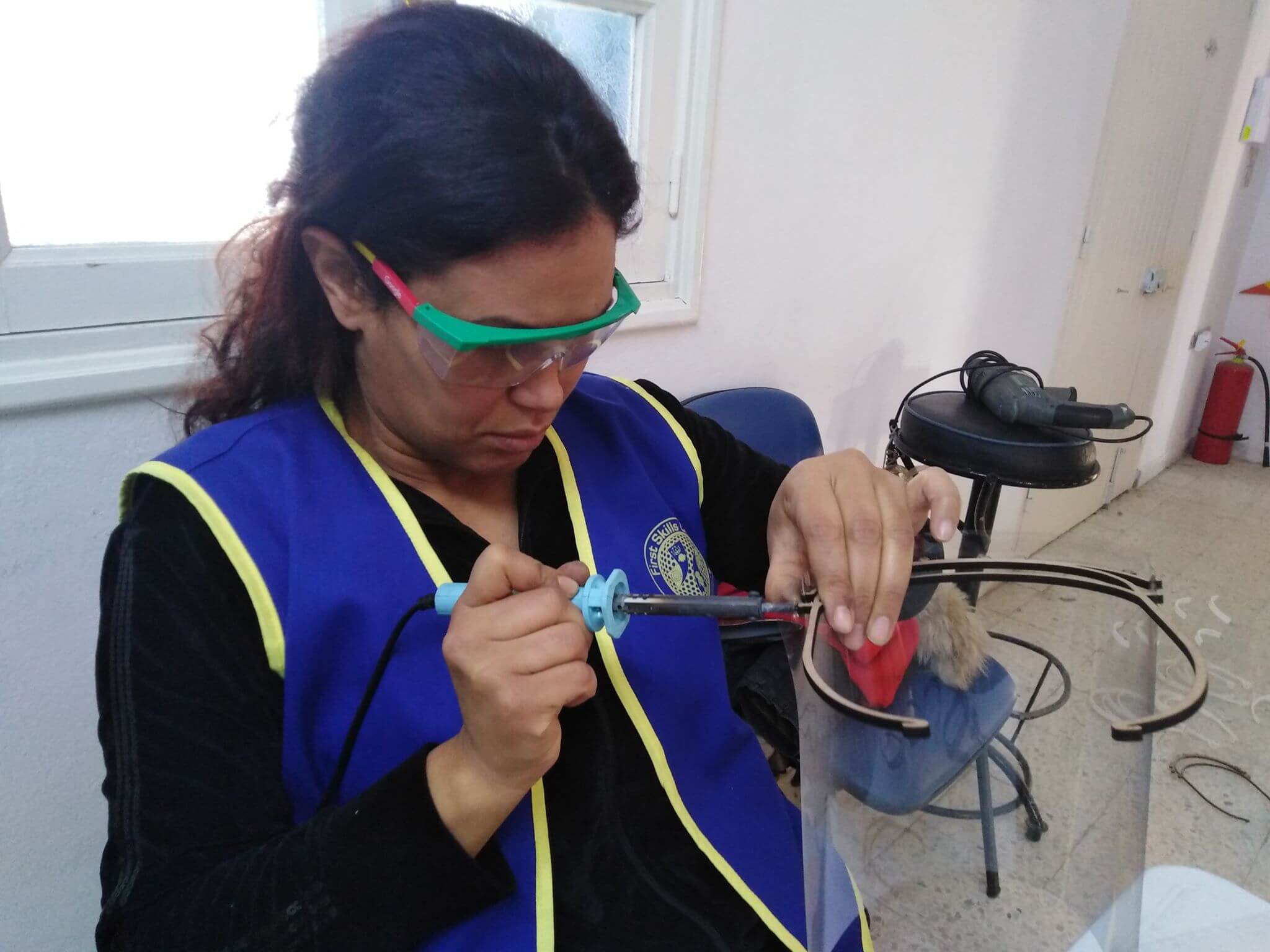

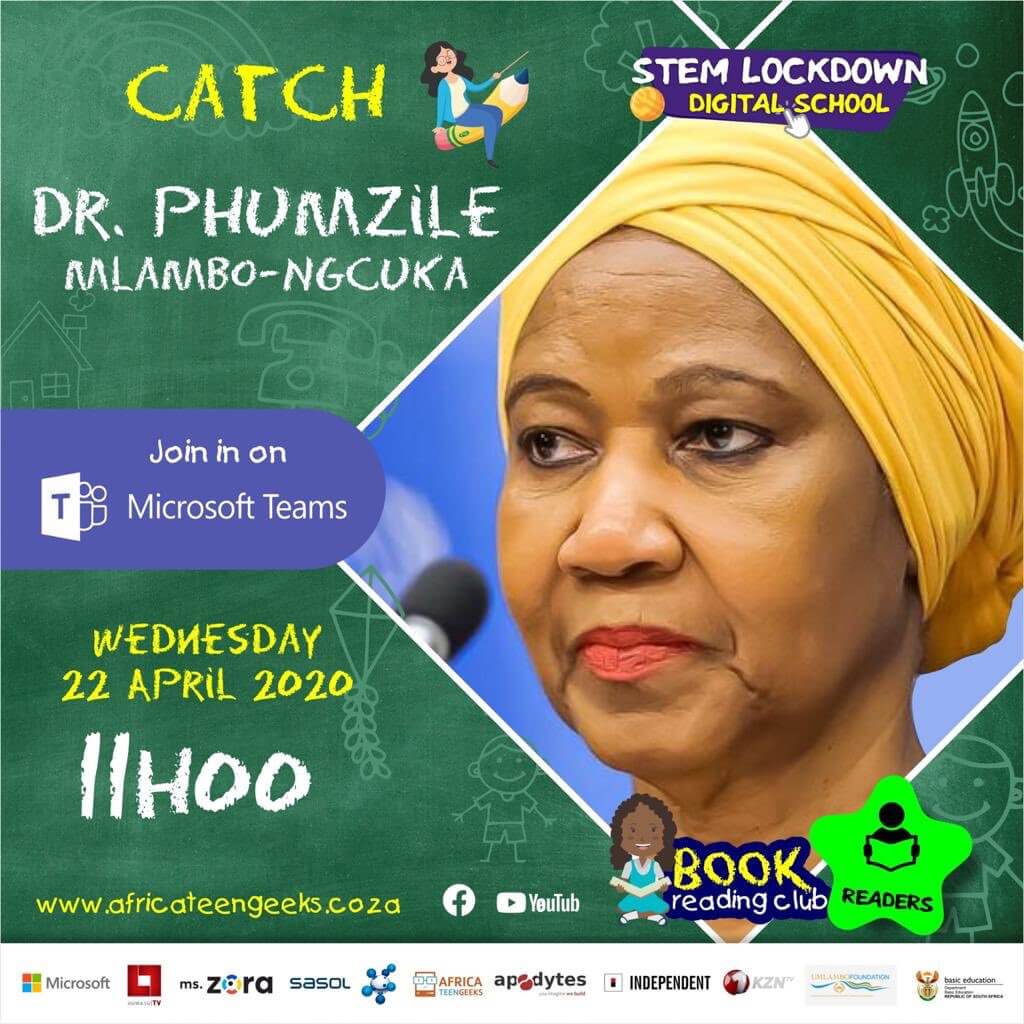
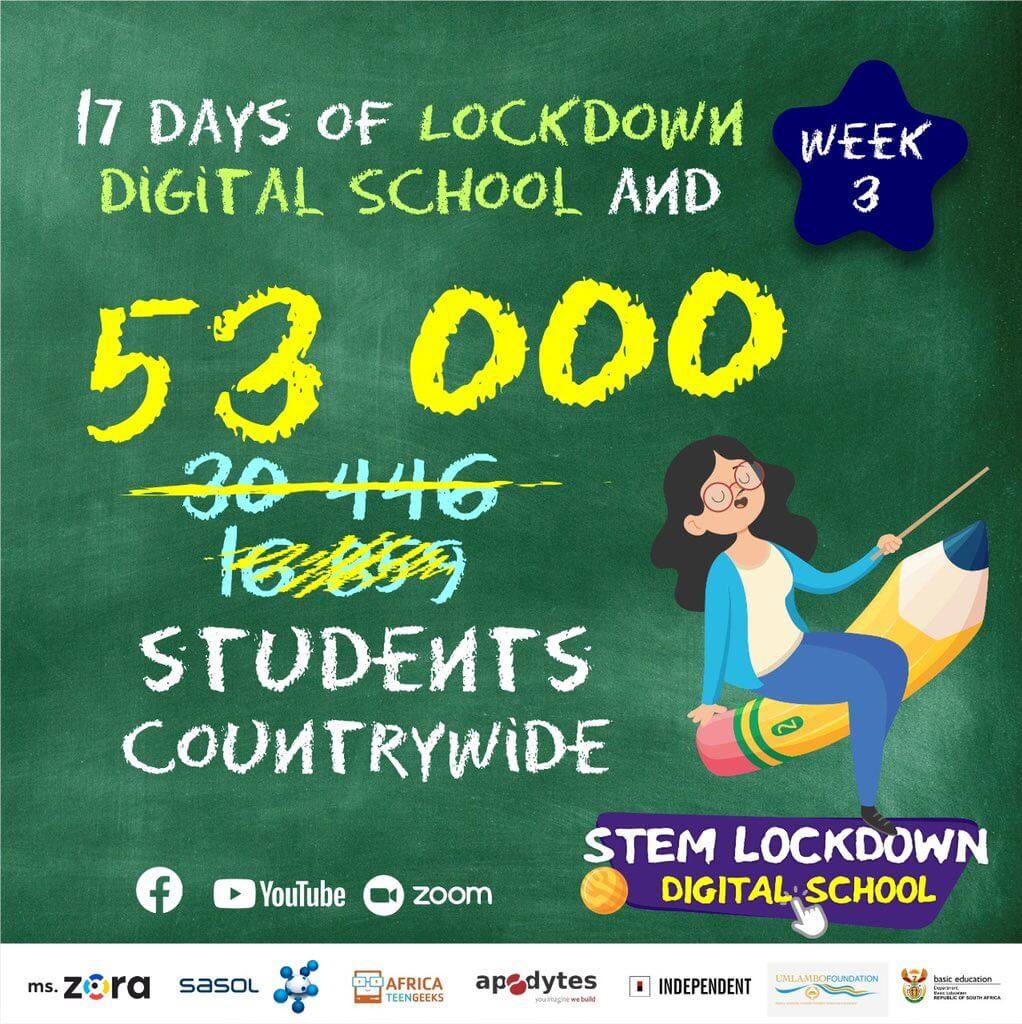
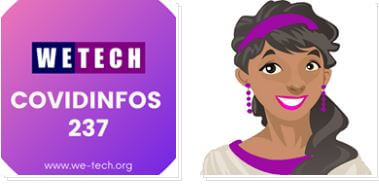
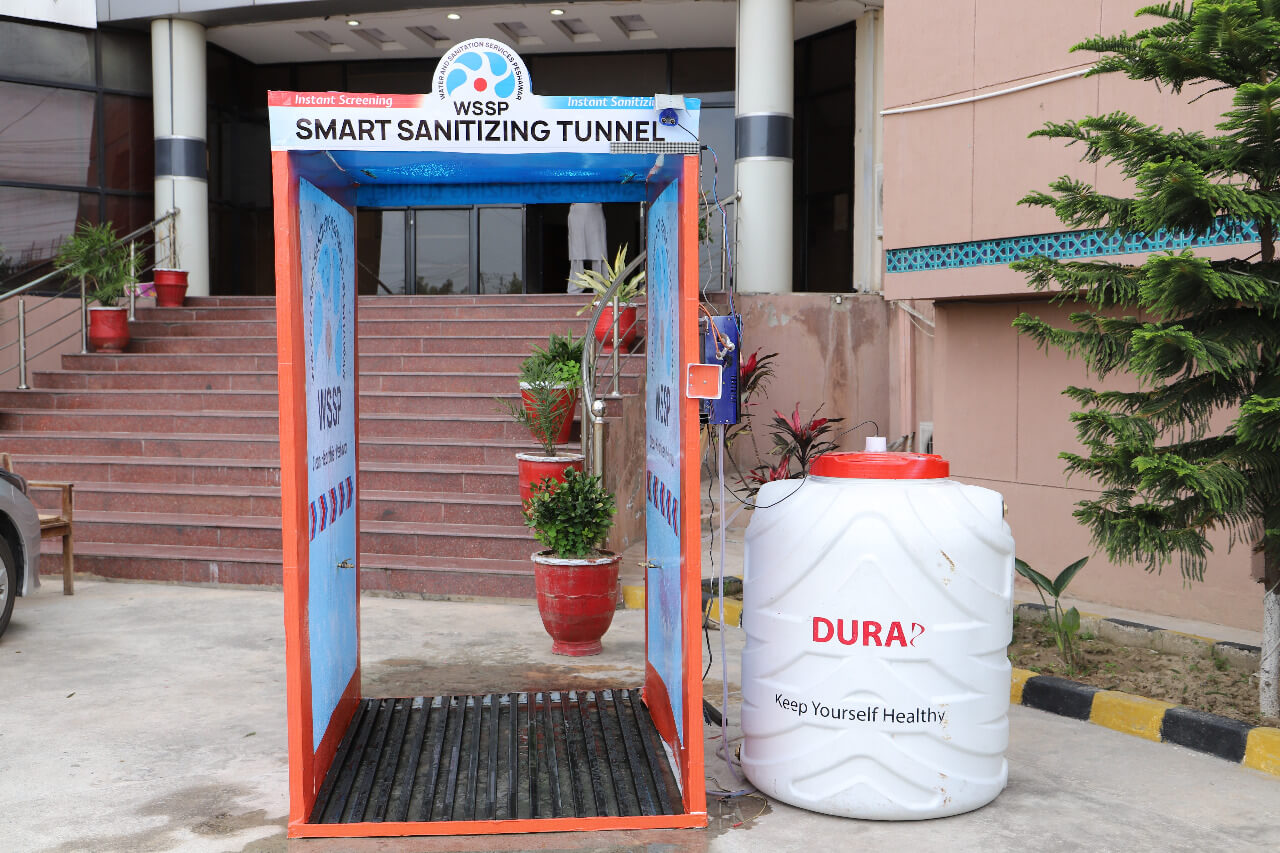
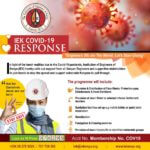

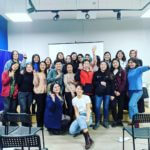

Speak Your Mind